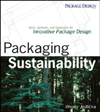STELVIN aluminum screwcap goes greener with reduced carbon footprint

(Courtesy of Amcor Capsules)
Amcor Capsules, a global leader in developing and producing responsible closures for wine and spirits, has improved the sustainability performance of its market leading STELVIN® aluminum screwcap range by reducing its carbon footprint by up to 35%.
The production of a STELVIN® screwcap now emits up to 35% less carbon emissions compared to a standard screwcap produced with European aluminum sheets. This is made possible thanks to the introduction of up to 46% recycled aluminum and the careful selection of low-carbon primary aluminum, which are certified and independently verified in the manufacturing process. This reduction applies immediately to STELVIN® and all 30H60 screw caps produced in Europe, North America and South America for wine and spirits brands.
Brands can also go further in their sustainability journey and select the polyvinylidene chloride (PVDC) free liner named STELVIN® INSIDE.
The improvements are immediately available to customers worldwide. This greener version of the STELVIN® screw cap takes part in Amcor Capsules’ TRANSPARENCE program – a sustainability program of continuous improvement that aims to support the wine and spirits industry. The program was launched in July 2023.
Yannick Magnon, General Manager of Amcor Capsules says, “We were the market pioneers in 1964 with the launch of the first screw cap for wine. Since then, STELVIN® has been recognized and praised by winemakers worldwide as setting the standard for quality and as one of the most sustainable capping solutions in the industry. We always aim for the best for our customers, and we wanted to go further to help them achieve their own sustainability goals.”
STELVIN® carbon footprint reduction shows Amcor Capsules’ commitment to increasing recycled content use and mitigating the environmental impact of its products.
This announcement supports Amcor’s pledge to reduce its carbon footprint and is part of its ongoing commitment to the SBTi, which commits the company to reach net zero emissions by 2050. Learn more about Amcor Capsules’ TRANSPARENCE program here.
RELATED: Packaging Figures Big in Australian Wine Company’s Sustainability Goals
Looking for a reprint of this article?
From high-res PDFs to custom plaques, order your copy today!







